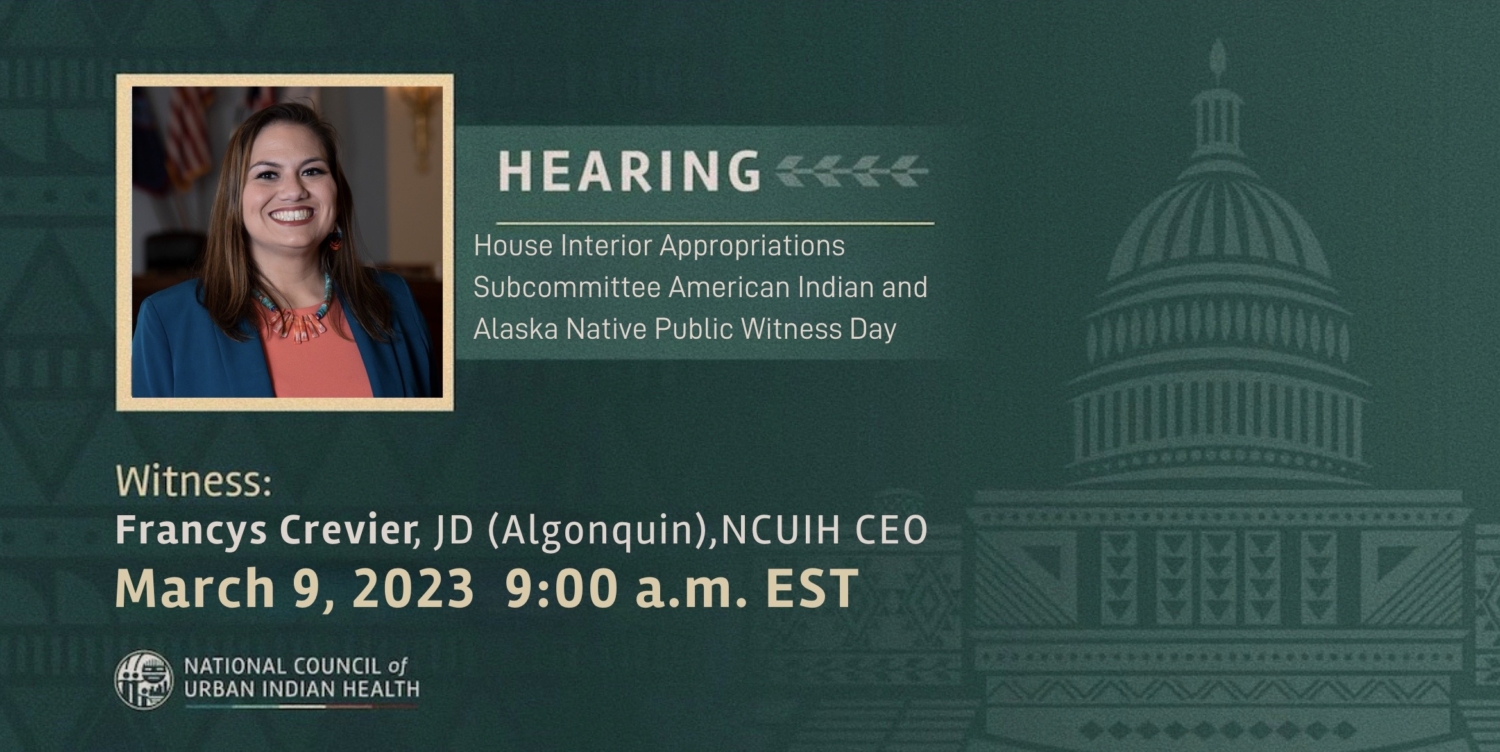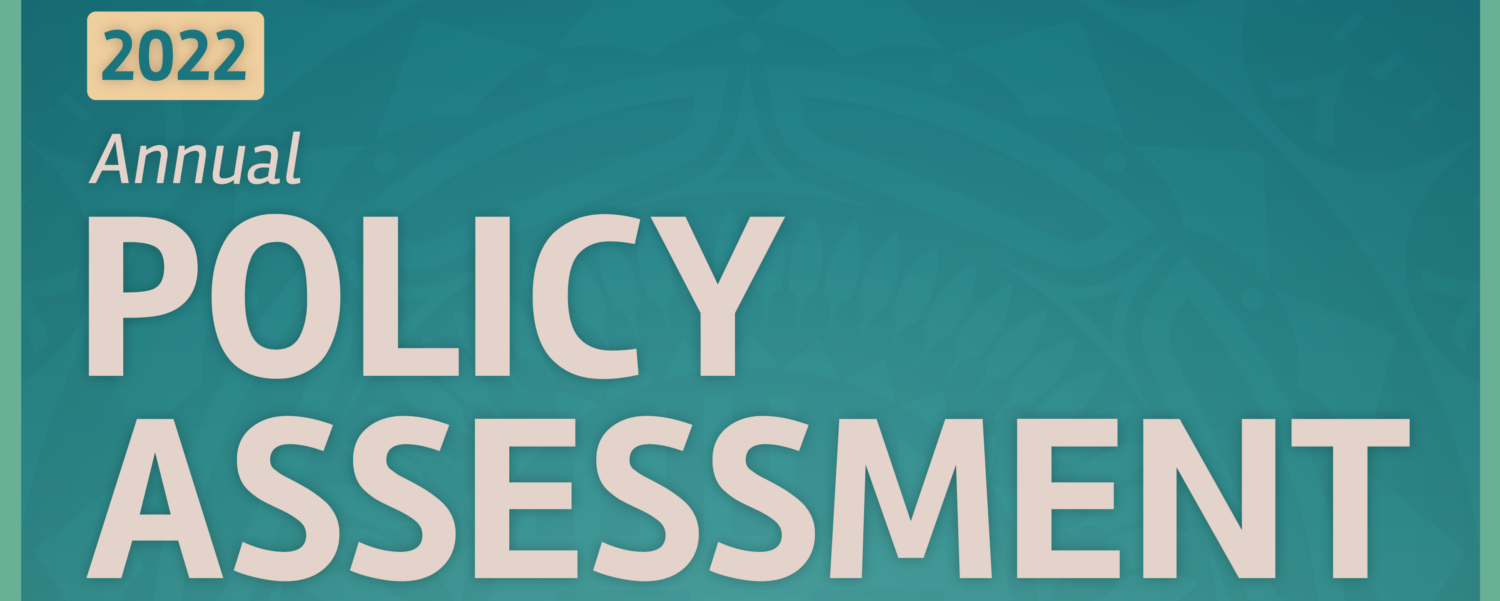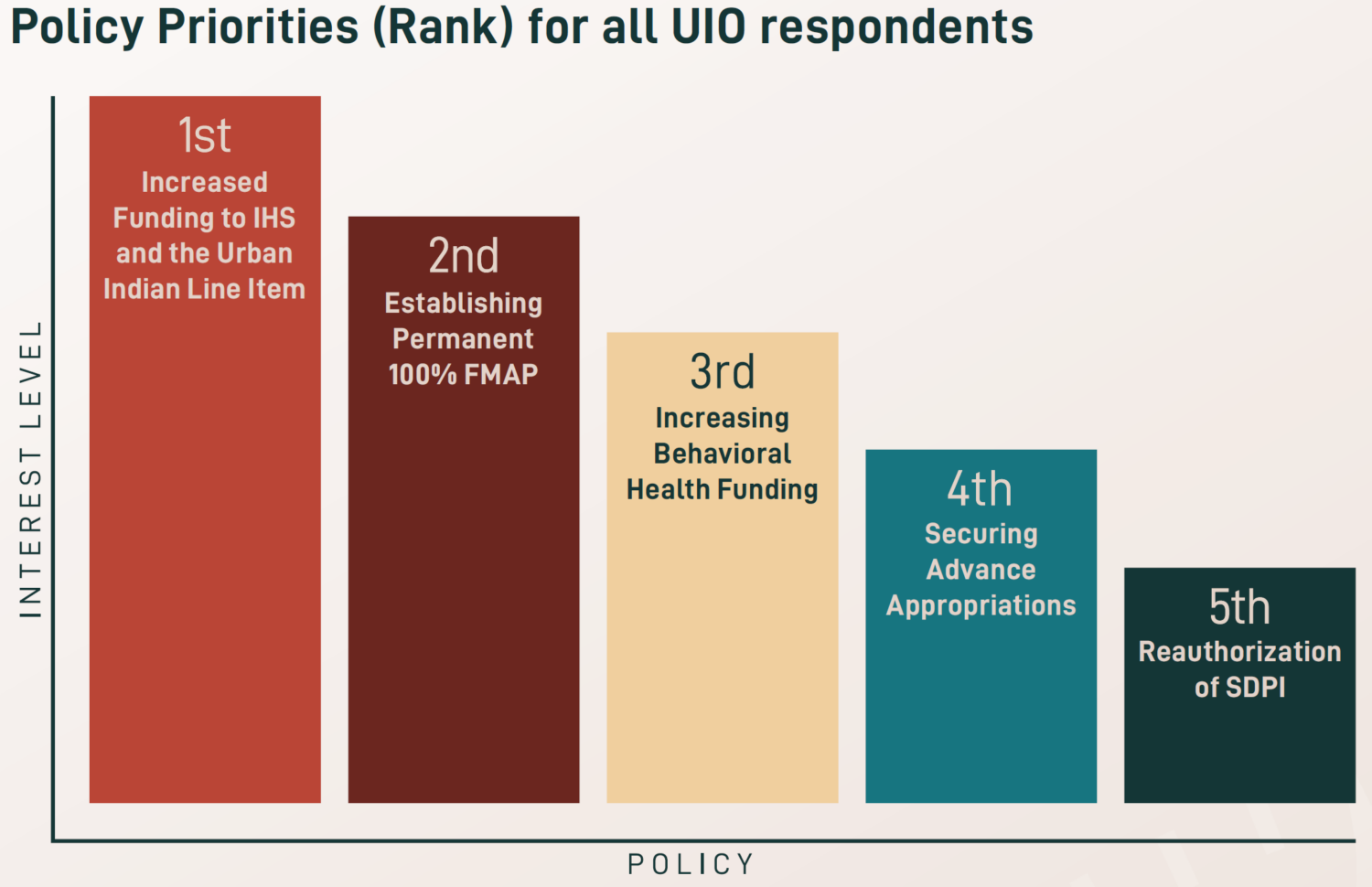National Native Organizations Call on Administration to Urgently Fund New Behavioral Health Program for Native Communities from Omnibus
On February 17, 2023, the National Council of Urban Indian Health (NCUIH), the National Indian Health Board (NIHB), Self-Governance Communication and Education Tribal Consortium, and the United South and Eastern Tribes Sovereignty Protection Fund sent a letter to request that the President include funding for the Native Behavioral Health Program authorized in the omnibus. Specifically, the organizations asked for the full authorized level of $80 million for the Native Behavioral Health Resources Program included in the Restoring Hope for Mental Health and Well-Being Act be funded in the President’s Fiscal Year (FY) 2024 Budget Request.
NCUIH particularly applauds Senator Tina Smith for her sponsorship and the co-sponsorship of Senator Cramer, Senator Tester, Senator Lujan, Senator Warren, and Senator Cortez Masto of the Native Behavioral Health Access Improvement Act of 2021, which was the foundation for the behavioral health provisions included in the Restoring Hope for Mental Health and Well-being Act. NCUIH also thanks Ranking Member Frank Pallone and Representative Raul Ruiz for championing this proposal to ensure that American Indians/Alaska Natives (AI/ANs) have greater access to resources necessary to address critical behavioral health needs and bring the federal government closer to fulfilling its trust obligations to AI/AN populations.
In particular, the letter outlines that the Restoring Hope for Mental Health and Well-Being Act includes a Native behavioral health provision that contains:
- A funding authorization of no less than $125 million annually over a minimum of four fiscal years.
- A mandate to deliver funding on a non-competitive basis.
- The opportunity to receive funding through Indian Self-Determination Act contracts or compacts.
- A requirement that any funding formulas be developed in consultation with Tribal Nations and conference with Urban Indian Health Organizations.
- A requirement that reporting requirements be developed through a negotiated rulemaking process between the federal government, Tribal Nations, and Urban Indian Health Organizations.
This is in response to the high rates of behavioral health issues caused by centuries of generational trauma resulting from colonization and hostile acts of the United States Government. In fact, as outlined in the letter, Native people experience serious mental illnesses at a rate 1.58 times higher than the national average, and high rates of alcohol and substance abuse. In fact, between 1999 and 2015, the drug overdose death rates for Native populations increased by more than 500%. Native youth also experience the highest rates of suicide and depression, with the Native youth suicide rate being 2.5 times that of the national average.
Letter
Re: Native Behavioral Health Resources Program
Dear Director Young,
On behalf of the undersigned Tribal partner organizations, we write to urge the inclusion of the full authorized level of $80 million in the President’s Fiscal Year (FY) 2024 Budget Request to fund the Native Behavioral Health Resources Program as included in the Restoring Hope for Mental Health and Well-Being Act. Tribal Nations and our citizens continue to face high rates of behavioral health issues, caused by myriad factors, including centuries of generational trauma resulting from colonization and hostile acts of the United States government. Yet, in violation of federal trust and treaty obligations to provide comprehensive health care to Tribal Nations, we continue to lack substantial and sustained funding to address these challenges for current and future generations. As the collective trauma of living through the COVID-19 public health crisis only exacerbates and intensifies these issues, it is critical that Tribal Nations and the Indian Health System are equipped with the resources necessary to bring healing and recovery to our communities.
Between 1999 and 2015, the drug overdose death rates for American Indian and Alaska Native (AI/AN) populations increased by more than 500%. Addressing the challenges presented by the opioid crisis in Indian Country is further complicated by high rates of alcohol and substance abuse, suicide, and other serious mental health conditions. AI/AN populations experience serious mental illnesses at a rate 1.58 times higher than the national average, and Native youth experience the highest rates of youth suicide and depression in the country. Yet far too many facilities across the Indian Health System are unable to access the quality health care and services necessary to address these behavioral health issues. A survey conducted by the Indian Health Service (IHS) found that Tribal Nations rated the expansion of inpatient and outpatient mental health and substance abuse facilities as our number one priority. Currently, only 39% of IHS facilities provide 24-hour mental health crisis intervention services, and 10% of IHS facilities do not provide any crisis intervention services at all.
To combat the opioid epidemic and the broader behavioral health crisis in Indian Country, Tribal Nations and facilities across the Indian Health System require flexible and substantial funding to create behavioral health programs that are responsive to the unique circumstances facing our communities. Toward that end, along with Congressional partners, we urged at the end of the 117th Congress that the Restoring Hope for Mental Health and Well-Being Act include a Native behavioral health provision that contained the following:
- A funding authorization of no less than $125 million annually over a minimum of four fiscal years;
- A mandate to deliver funding on a non-competitive basis;
- The opportunity to receive funding through Indian Self-Determination Act contracts or compacts;
- A requirement that any funding formulas be developed in consultation with Tribal Nations and conference with Urban Indian Health Organizations; and
- A requirement that reporting requirements be developed through a negotiated rulemaking process between the federal government, Tribal Nations, and Urban Indian Health Organizations.
Although only some of our priorities were adopted in the final bill and while centuries of underinvestment in mental and behavioral health across Indian Country will require sustained funding and thoughtful effort on the part of Congress and the Administration to properly address, funding the Native Behavioral Health Resources Program would represent a significant step toward this goal. We urge the Biden Administration to prioritize its trust and treaty obligations to Tribal Nations by supporting Tribal Nation access to federal mental health and substance use disorder programs, including the Native Behavioral Health Resources Program. We thank you for your attention to this matter and look forward to continued collaboration on improve health care throughout Indian Country.
Sincerely,
National Council of Urban Indian Health
National Indian Health Board
Self-Governance Communication and Education Tribal Consortium
United South and Eastern Tribes Sovereignty Protection Fund
Background
In response to these chronic health disparities and the dire need for behavioral health resources for Indian health care providers, the House Energy and Commerce Committee drafted bipartisan legislation creating the Native Behavioral Health Resources Program. This legislation was included in the House-passed Restoring Hope for Mental Health and Well-Being Act (H.R.7666), and ultimately included in the Consolidated Appropriations Act, 2023. This provision authorized to be appropriated $80 million for the Native Behavioral Health Resources Program.




 The National Council of Urban Indian Health (NCUIH) is pleased to announce the release of its
The National Council of Urban Indian Health (NCUIH) is pleased to announce the release of its  After the height of the COVID-19 pandemic, newfound priorities were identified for 2023, including workforce development and retention, increased funding for traditional healing, and expanded access to care and telehealth services. Existing priorities also remain a key focus across UIOs, especially increasing funding amounts for the urban Indian health line item and IHS, maintaining advance appropriations for IHS, establishing permanent 100% Federal Medical Assistance Percentage (FMAP) for UIOs, reauthorizing the Special Diabetes Program for Indians (SDPI), and increasing behavioral health funding.
After the height of the COVID-19 pandemic, newfound priorities were identified for 2023, including workforce development and retention, increased funding for traditional healing, and expanded access to care and telehealth services. Existing priorities also remain a key focus across UIOs, especially increasing funding amounts for the urban Indian health line item and IHS, maintaining advance appropriations for IHS, establishing permanent 100% Federal Medical Assistance Percentage (FMAP) for UIOs, reauthorizing the Special Diabetes Program for Indians (SDPI), and increasing behavioral health funding.